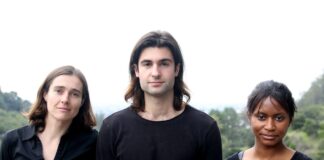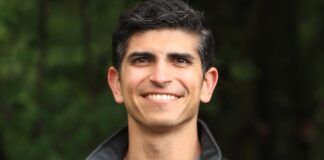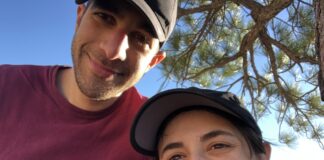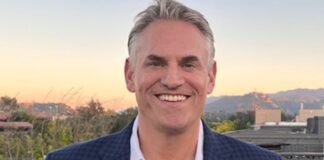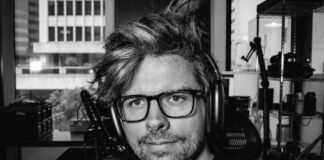Venn: The Neighborhood Company focused on connections among neighbors
Please introduce yourself and Venn to our readers!
OR: I’m Or Bokobza, and I’m the co-founder & CEO of Venn, along with my partner Chen Avni.
CHEN: We think of ourselves as “The Neighborhood Company,” and we’re focused on strengthening connections among neighbors.
OR: We want to empower people to come and stay, shop local, and give back. It’s about improving real-life connections for our neighbors, while at the same time increasing demand, retention, and net operating income (NOI) for our real estate partners. A win-win.
Why did you decide to start a business?
CHEN: Honestly, it’s more like the business found us.
OR: That’s totally right. Chen and I met eight years ago when we were both traveling the world after our time in the Israeli army. We fell into a really easy friendship. We were both raised in cooperative communities. I was raised in a moshav, which is a co-op village.
CHEN: And I was raised in a kibbutz, which is a more agricultural type of commune. So, we both had similar childhoods that were pretty idyllic, growing up in these collaborative and supportive environments. We both felt like that kind of neighbor and community connection was something that had been lost in much of the world. And we thought we could do something about it.
OR: So, as we traveled through Peru, Panama, and India together, we started talking about how we could build a community like the ones we grew up in, and use the best digital tools to support them.
CHEN: Back in Tel Aviv after our travels, we got a call one day about a building for sale in the Shapira neighborhood, which at the time was lovely but quite neglected. Because of our conversations, we thought we’d check it out. The moment we saw it, we knew this could be the place to realize our vision. We could see it all so clearly—the coffee shop, the coworking space, community gatherings—that we moved right in.
OR: Everyone thought we were crazy, moving to this neighborhood. But we didn’t care. We had a clear vision for what we wanted to do, and we knew we had to really commit and immerse ourselves in this neighborhood in order to bring it to life. That was the beginning of the journey to what would eventually become Venn.
CHEN: Today, that mindset is what guides our expansion. It’s essential that we move into the community and become part of the neighborhood as we build the platform. It’s not enough for us to be founders or a company. We have to be neighbors as well. And it’s worked—in the last year, we doubled the number of Venn communities around the globe.
What is the vision behind Venn?
CHEN: As “The Neighborhood Company,” our mission is to help people feel a sense of belonging in their homes and neighborhoods. We make it easy and enjoyable for neighbors to connect with each other and their neighborhoods. The ultimate goal, though, is participation: we want people to build their neighborhoods like we did. Venn’s digital platform, real-world spaces, and custom experiences are designed to support just that, and strengthen the neighborhood economies while we’re at it.
OR: Venn has one KPI: “Belonging.” Over the years in our neighborhoods, we’ve learned that self-reported levels of loneliness and connection are highly accurate predictors of people’s likelihood to stay and put down roots. When you increase real-life connections for people, guess what decreases? Self-reported loneliness. And that goes hand-in-hand with increasing demand, retention, and NOI for our real estate partners. In short: vibrant, connected neighborhoods make more people want to come and stay. And that makes us a double-bottom line company for our real estate partners.
From the idea to the launch, what have been the biggest challenges so far and how did you finance yourself?
OR: Essentially, entrepreneurship means making the impossible a reality. It means having the passion, vision, and commitment necessary to bring the impossible to life in the world.
When we first pitched our idea to some early potential investors, we were met with total disbelief. People even laughed at us. Fast forward a few years and we’d secured a $40M seed round, which was revolutionary here in Israel.
CHEN: Looking back at the mistakes we made along the way, today I can honestly say that each of those challenges strengthened our resilience and united us as a founding team. It’s all a valuable part of the process.
What is Venn’s target audience?
CHEN: Venn is currently in Brooklyn, Tel Aviv, and Kansas City, with plans to expand to five more US markets over the next several months. Our neighbors—that’s our term for residents—are an incredible mix of ages, backgrounds, languages, and cultures, but I’d say something that they share is the “doer’s spirit.” The go-getters. People who don’t just live in a place, but actively shape and build their neighborhoods. So our target audience is comprised of those people who want to participate.
OR: We also have an audience of real estate partners who value Venn’s growing cultural importance to our communities. We’ve learned that the more Venn neighbors participate in local events and social impact opportunities, the more likely they are to stay. In 2020, Venn saw a 37% reduction in people leaving their neighborhoods. While you could chalk that up to people not wanting to move during a pandemic, we also saw a 20% jump in people moving in.
How does Venn work? What are the advantages? What makes you different from your competitors?
OR: Venn delivers a seamless experience of technology, spaces, and local expertise and programming to double the number of real-world connections of our neighbors. We provide our communities with a “Better Way to Neighbor.”
CHEN: Supporting the local economy is a pillar of Venn’s mission. We drive traffic to, and often provide shelf space for, a vibrant mix of small local businesses—a local farmer, a restaurant, a pet store, or a neighbor selling home-sewn products. By the end of 2020, every Venn neighbor returned an average of $2,240 more to their local economy, strengthening small businesses around the world at a critical time (Source: Venn Annual Impact Report, 2020).
How has your company changed with COVID-19? How did you adjust and what changes have you made?
OR: From the very beginning of Venn, long before COVID-19, we were concerned about the epidemic of loneliness. Over the past 30 years, the world has seen a steady rise in feelings of isolation—61% of Americans report feeling lonely (Jan. 2020 Cigna Loneliness Report) and 1-in-5 Americans report that they rarely have close real-world connections (WebMD, 2019 Yougov Survey). This isn’t an accident or a mystery. Over the same period, society has made it easier to connect with strangers around the world than neighbors around the corner. With a narrow focus on virtual connections, we’ve lost touch with something elemental and vital for our lives and progress: physical community, the idea of “neighborhood.” It shouldn’t be this way. This is the problem that Venn was built to solve.
We’ve been neighboring since 2017, but COVID-19 has increased the need for our work.
CHEN: Worldwide, all Venn Spaces shut down in March 2020, robbing our neighborhoods of vital gathering places. We immediately reworked them to act as physical storefronts for pick-up and delivery for local businesses. And we created localized virtual stores where our neighbors could shop and order. While Seamless, Grubhub, and UberEats took a large cut of every transaction, we did this for free.
OR: Our local experts—Venn Hosts—stayed on the front lines to support their neighborhoods. Beyond organizing virtual and socially distanced events, Hosts’ responsibilities expanded to include neighbor well-being. A campaign to invite neighbors to contact Hosts anytime, any day, for literally anything, took off. Texts, calls, socially distanced coffees, help finding places to work from… Venn Hosts rose to the challenge of shepherding and fostering real-world connection during our planet’s most physically isolating time.
Where do you see opportunity in the crisis?
OR: Throughout 2020, Venn neighbors saw a steady drop in reported feelings of disconnection and loneliness, matched by an increase in their affinity for Venn. Compared to their peers, Venn neighbors saw a 50% decline in self-reported loneliness and reported a 50% rise in the number of new connections made with neighbors. 90% of them participated in at least one virtual event per month, and more than 40% participated in at least two (Source: Venn Annual Impact Report, 2020).
CHEN: In our Tel Aviv community, neighbors took over programming from our local experts and produced more than 500 events for their neighbors. Venn Brooklyn put the focus on local businesses, creating virtual events to feature them and opening a new bodega—General Irving—to support their products and services. And across every community, neighbors self-organized to do more than 50 “give back” events, in-person and socially distanced, to support children’s education, the environment, social justice, and a long list of other causes important to our communities.
Where is Venn headed? Where do you see yourself in five years?
OR: The reason we often refer to ourselves as “The Neighborhood Company” is that we really do believe Venn works anywhere that connections between neighbors and neighborhoods can be strengthened—which is to say, everywhere. It takes a long time to be everywhere, so I hope that in five years we are still pursuing our mission of helping people to belong.
CHEN: And I hope we can look back and say that millions of people in thousands of neighborhoods are happier, more connected, and more involved in their communities because we did our jobs right.
Which 3 tips would you give to future founders?
CHEN: We live in a time when we expect everything to be immediate, but real change takes time. Give yourself the time to build steadily towards real change. Keep the vision 20, 30 years into the future.
OR: Your company will never be bigger than the vision of its founders. So, don’t hold back. Dream big.
CHEN: And get out there and explore your community. Some founders get tunnel vision and they don’t really experience their communities, which is such a missed opportunity. Wherever you choose to build your business, consider how you can be an active member of your community. Research, ask questions, build relationships. And, importantly—find ways to give back.
Thank you Or Bokobza and Chen Avni for the Interview
Statements of the author and the interviewee do not necessarily represent the editors and the publisher opinion again.




